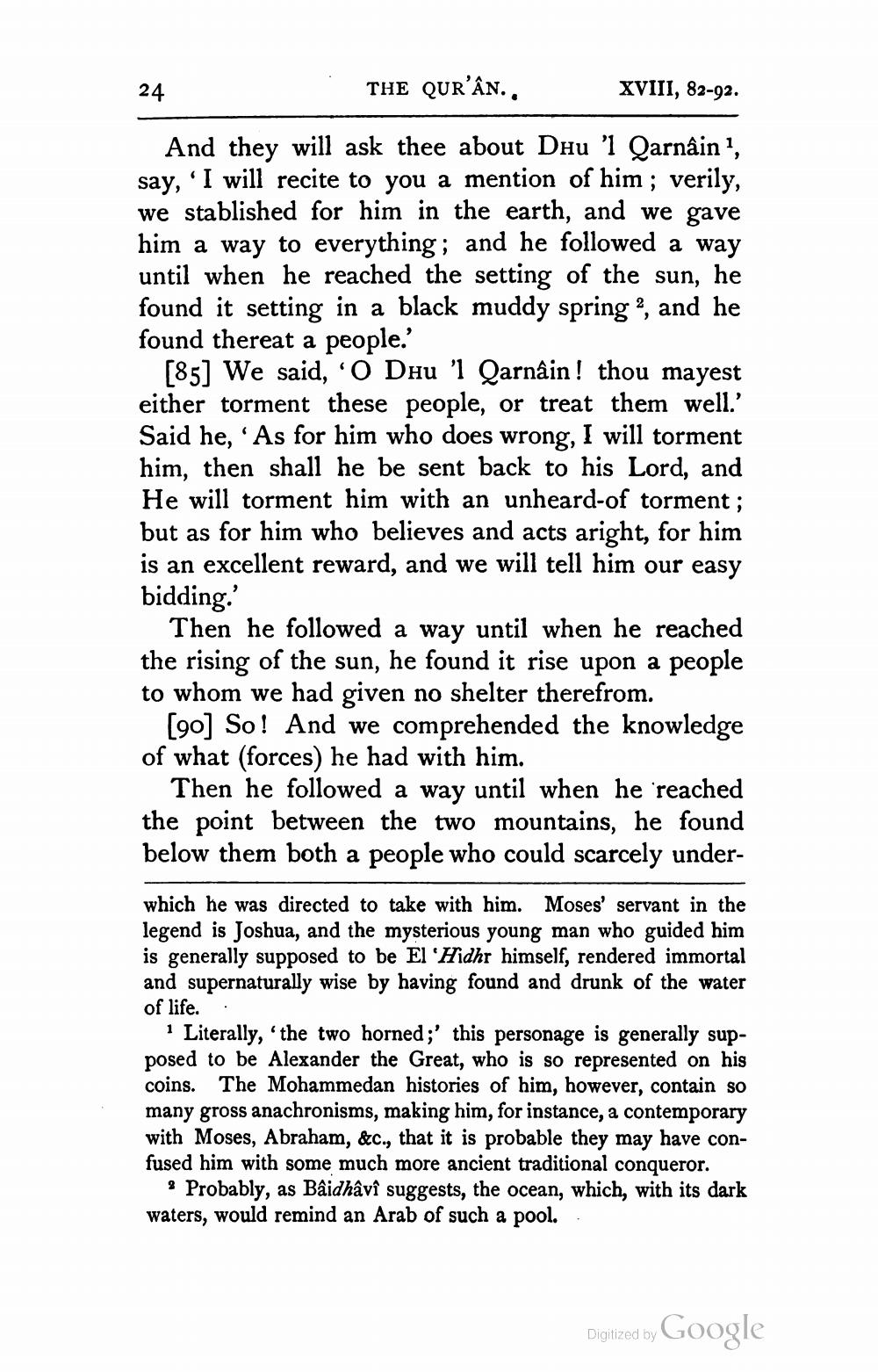________________
24
THE QUR'ÂN.,
XVIII, 82-92.
And they will ask thee about Dhu 'l Qarnain ?, say, 'I will recite to you a mention of him ; verily, we stablished for him in the earth, and we gave him a way to everything; and he followed a way until when he reached the setting of the sun, he found it setting in a black muddy spring ?, and he found thereat a people.'
[85] We said, O Dhu 'l Qarnain! thou mayest either torment these people, or treat them well.' Said he, As for him who does wrong, I will torment him, then shall he be sent back to his Lord, and He will torment him with an unheard-of torment; but as for him who believes and acts aright, for him is an excellent reward, and we will tell him our easy bidding.'
Then he followed a way until when he reached the rising of the sun, he found it rise upon a people to whom we had given no shelter therefrom.
[90] So! And we comprehended the knowledge of what (forces) he had with him.
Then he followed a way until when he 'reached the point between the two mountains, he found below them both a people who could scarcely under
which he was directed to take with him. Moses' servant in the legend is Joshua, and the mysterious young man who guided him is generally supposed to be El 'Hidhr himself, rendered immortal and supernaturally wise by having found and drunk of the water of life. :
1 Literally, the two horned;' this personage is generally supposed to be Alexander the Great, who is so represented on his coins. The Mohammedan histories of him, however, contain so many gross anachronisms, making him, for instance, a contemporary with Moses, Abraham, &c., that it is probable they may have confused him with some much more ancient traditional conqueror.
? Probably, as Bâidhâvî suggests, the ocean, which, with its dark waters, would remind an Arab of such a pool.
Digitized by Google




